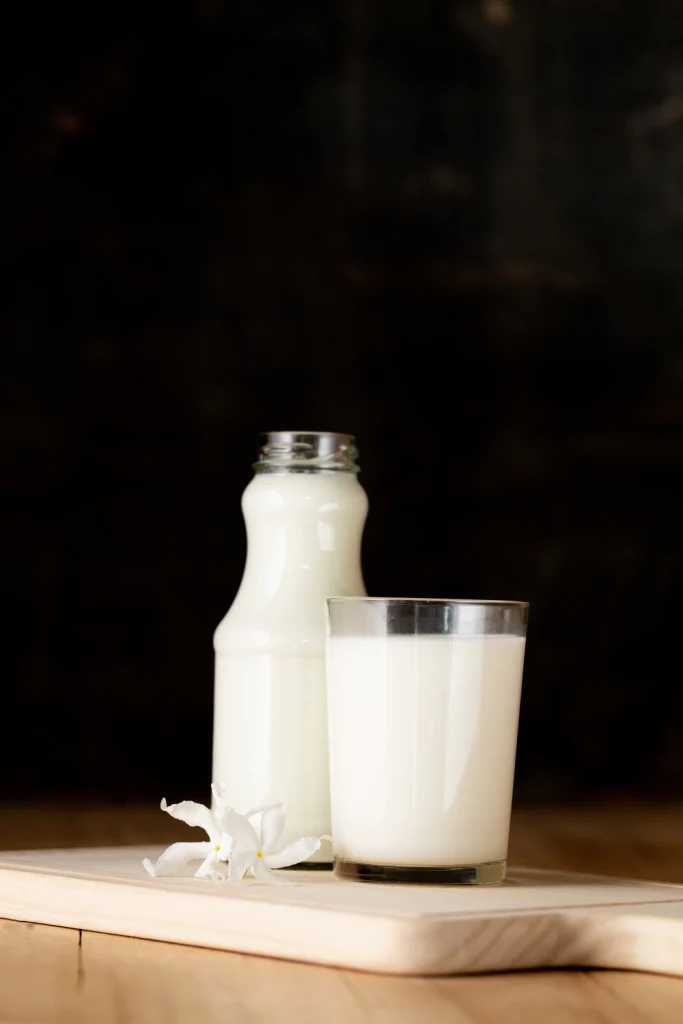Breast milk is a primary source of nutrition for infants. Babies are recommended to receive exclusive breastfeeding for the first 6 months. After that, breastfeeding should continue until the age of 2, with the addition of complementary foods.
Breast milk provides a range of nutrients essential for an infant’s growth and development. These nutrients include carbohydrates, proteins, fats, vitamins, and minerals that are easily absorbed and digested by the baby.
What about lactose? Does breast milk contain lactose? This article will discuss whether breast milk contains lactose and issues related to lactose intolerance in infants. Let’s understand together.
Does Breast Milk Contain Lactose? Answer: Yes!
The nutrient content of breast milk depends on the mother’s diet. Therefore, the composition of breast milk can vary from mother to mother. Additionally, the composition of breast milk changes over the course of breastfeeding.
According to the Indonesian Pediatric Society (IDAI) website, breast milk contains both macro and micro nutrients. Macronutrients include carbohydrates, proteins, and fats. Micronutrients in breast milk include vitamins, calcium, iron, and zinc.
Lactose is a natural sugar in breast milk and is the main carbohydrate in breast milk. Lactose serves as one of the energy sources for the brain, making it crucial for the baby’s development.
The lactose content in breast milk is higher than in cow’s milk or formula. Lactose levels in breast milk increase in the first 7–14 days after birth and then tend to stabilize.
Breast milk from mothers who deliver prematurely contains less lactose compared to breast milk from mothers who deliver at term.
Can Lactose in Breast Milk Trigger Lactose Intolerance?
In digestion, lactose is broken down into glucose and galactose by an enzyme called lactase. A deficiency or absence of lactase can result in lactose not being properly digested, leading to digestive issues.
Lactose in breast milk can also cause lactose intolerance. However, lactose intolerance in infants is very rare. The digestion of lactose in breast milk is generally better than that in cow’s milk or formula.
Nonetheless, some babies might experience lactose intolerance. Lactose intolerance can be caused by genetic factors or digestive diseases that affect lactase production.
Symptoms of lactose intolerance in infants may include:
- Diarrhea
- Bloating
- Stomach pain
- Vomiting
- Frequent gas
- Redness around the anus
- Foul-smelling stools
If your baby exhibits these symptoms, it is best to consult a doctor for further examination and appropriate treatment.
What Should You Do If Your Baby Has Lactose Intolerance?
If your baby has lactose intolerance, it is important to consult a doctor for appropriate management.
Additionally, here are some steps to take if your baby is lactose intolerant:
1. Monitor Symptoms
Observe your baby’s reaction after drinking breast milk or formula. Record any symptoms of lactose intolerance to help with your doctor’s consultation.
2. Adjust Mother’s Diet
In some cases, reducing the intake of cow’s milk and dairy products by the mother can help reduce lactose intolerance symptoms in the baby.
3. Alternative Formula
If the baby’s lactose intolerance is severe, lactose-free formula might be necessary. However, consult a pediatrician before introducing formula to your baby.
4. Avoid Lactose-Containing Foods and Drinks
If the baby is already on complementary foods, avoid giving foods and drinks containing lactose, such as cow’s milk, cheese, yogurt, and ice cream.
Arummi’s Recommendation: Try Arummi Cashew Milk!
Try Arummi Cashew Milk, which is enriched with essential nutrients and is lactose-free and low in sugar.
You can find Arummi Cashew Milk at the nearest supermarket in your area!









































